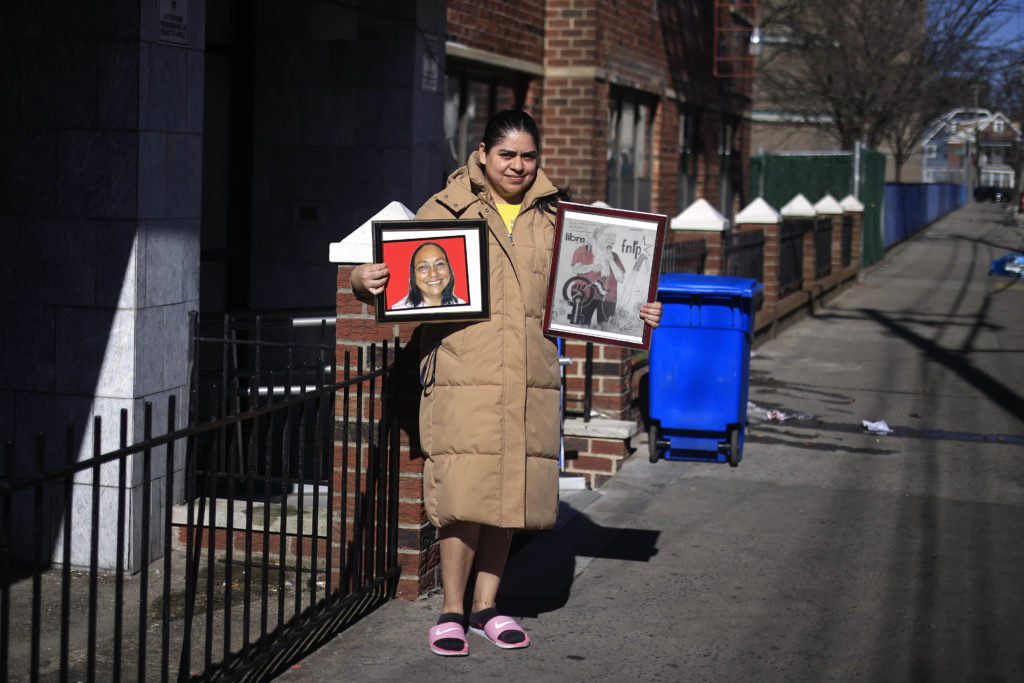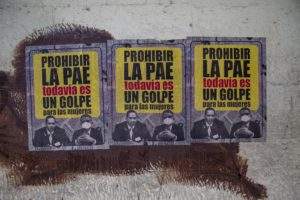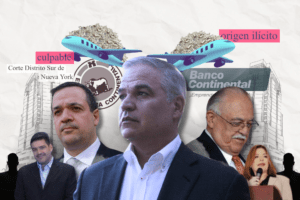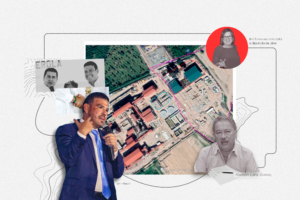Monserrat is the daughter of Margarita Murillo, a Honduran leading activist who was involved in campesino movements until her murder in 2014. She arrived in the U.S. after receiving death threats for seeking justice for her mother and has been living as a political refugee in New York ever since. During the trial against former Honduran President Juan Orlando Hernández, a witness mentioned Marlene Banegas, a Honduran prosecutor who was murdered after receiving information that exposed Hernández’ ties to the drug trade. Banegas was also investigating Murillo’s murder.
Text: Jorge Cabrera and Vienna Herrera
Photography: Jorge Cabrera
Translation: José Rivera
When Hernández was found guilty on drug trafficking charges, Monserrat was not present at the District Court for the Southern District of New York. But she had been protesting outside the court with other migrants before the conviction to remember the people who were murdered during Hernández’ two presidential terms. She heard the news of the conviction at home and couldn’t help crying because she finally got some justice after so many years.
Death threats forced Monserrat to leave Honduras nine years ago. She is the daughter of Margarita Murillo—a Honduran campesina who fought her entire life to protect land rights, especially for women, but was murdered on August 27, 2014.
Murillo’s murder shows the pattern of violence against human rights activists in Honduras. It’s been almost 10 years, and the case remains in impunity. Honduran prosecutor Marlene Banegas had been following up on the case but was murdered on October 10, 2014. During the trial against Hernández, a witness summoned by the prosecutors, José Sánchez—an alias to protect the identity of the accountant at Graneros del Norte, a company owned by Fuad Jarufe—said Banegas was murdered after he gave her videos and recordings that proved Hernández held meetings with Geovanny Fuentes, a Honduran drug trafficker sentenced to life in prison in the U.S.
This information came as no surprise to Monserrat because it was something that she and her family had suspected. She knew that Banegas was investigating organized crime and drug traffickers, and her mother’s case has been tied to the same criminal groups. “They had it all perfectly planned; they killed Banegas, my mother’s case remains in impunity and they get rid of all the evidence, considering that her file is empty,” she said. A few days before Banegas was murdered, she called Monserrat to let her know that three suspects were going to be arrested, but she couldn’t say their names because it was dangerous. They agreed to meet but that never happened because Banegas was murdered.
“We knew we were right as soon as Tigre Bonilla was extradited to the U.S. Banegas was murdered for investigating drug traffickers,” Monserrat said. Juan Carlos “Tigre” Bonilla was head of Honduras’ National Police between 2012 and 2013. Bonilla was expected to be tried alongside former President Hernández and former member of Honduras’ National Police Mauricio Hernández Pineda. But Bonilla and Pineda pleaded guilty days before the trial.
When Hernández was found guilty, Monserrat was overwhelmed by emotions. “It’s a victory for us and many Hondurans who have lost family members to criminal groups and the drug trade. We are certainly pleased that our martyrs got a little bit of justice,” she said.
“It’s not easy to attend those trials, knowing that they were responsible for the murder of a parent or any other loved one, and that’s been the case for many Hondurans. Perhaps they didn’t commit the killings themselves, but they were in charge.” Monserrat added. She believes that the intellectual authors behind her mother’s murder remain unpunished in Honduras.
Months after Banegas was murdered, Monserrat fled to the U.S. with her daughter. Upon arriving at the U.S. border, she turned herself in to migration authorities, seeking political asylum. Although she now lives with her husband and two sons in an apartment building in Queens, she says it hasn’t been easy. Her daughter has Rett syndrome, a genetic neurological disorder that affects brain development. “When we arrived in the U.S., people were usually detained in a ‘freezing cell’ for up to six months. In my case, due to my daughter’s medical condition, I was only detained for a week,” she said.
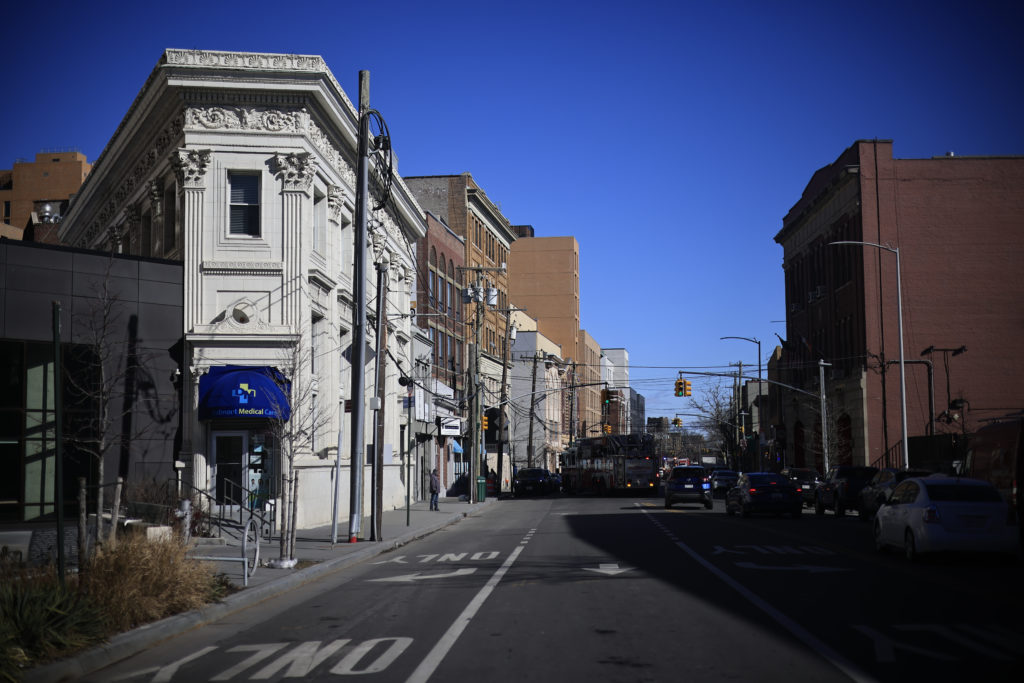
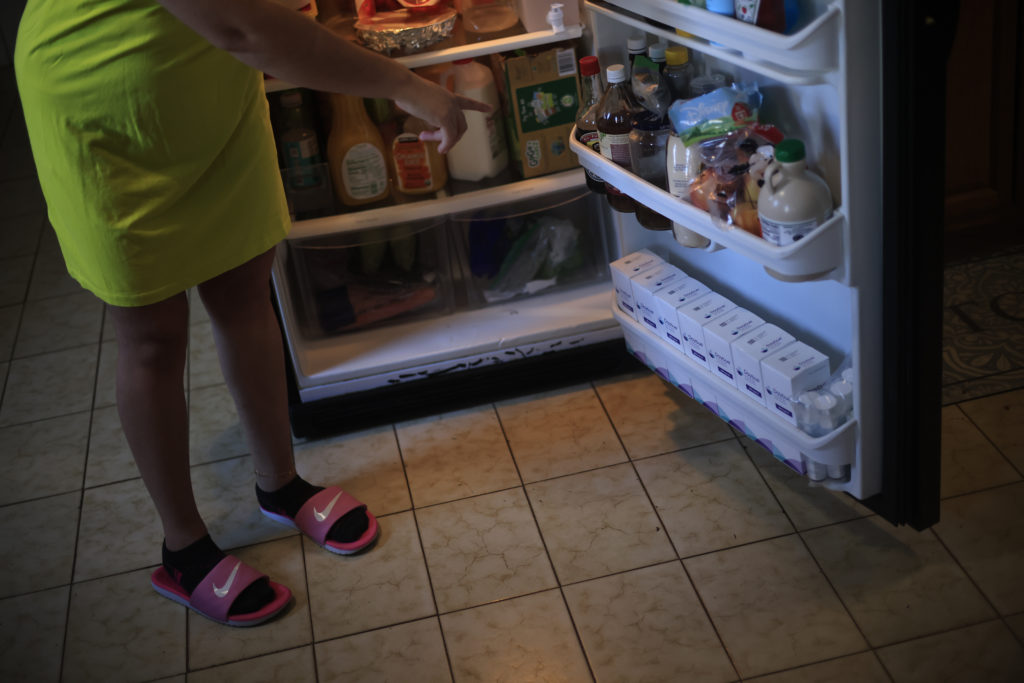
Monserrat’s refuge
Monserrat does care and domestic work to earn a living. She also has a Tik-Tok account where she earns an additional income by promoting products. As she prepares hot oatmeal, she says that although she escaped from a violent political persecution in Honduras, her life in the U.S. hasn’t been peaceful. She was threatened by Roberto Quesada, Honduras’ ambassador to the Organization of American States (OAS), after she filed a denunciation of attempted rape against him.
Denunciations of gender violence filed against politicians or members of President Xiomara Castro’s administration have not been investigated. “We also face threats here in the U.S., but it’s different because they know they can’t hurt you that easily. Unfortunately, I’m being persecuted by two governments, two governments!” she says with indignation.
During the trial against Hernández, Devis Leonel Rivera Maradiaga, drug trafficker and leader of the Los Cachiros Cartel, said he bribed Carlos Zelaya, current secretary of Honduras’ National Congress, brother of former Honduran President José Manuel Zelaya and father of the current secretary of defense.
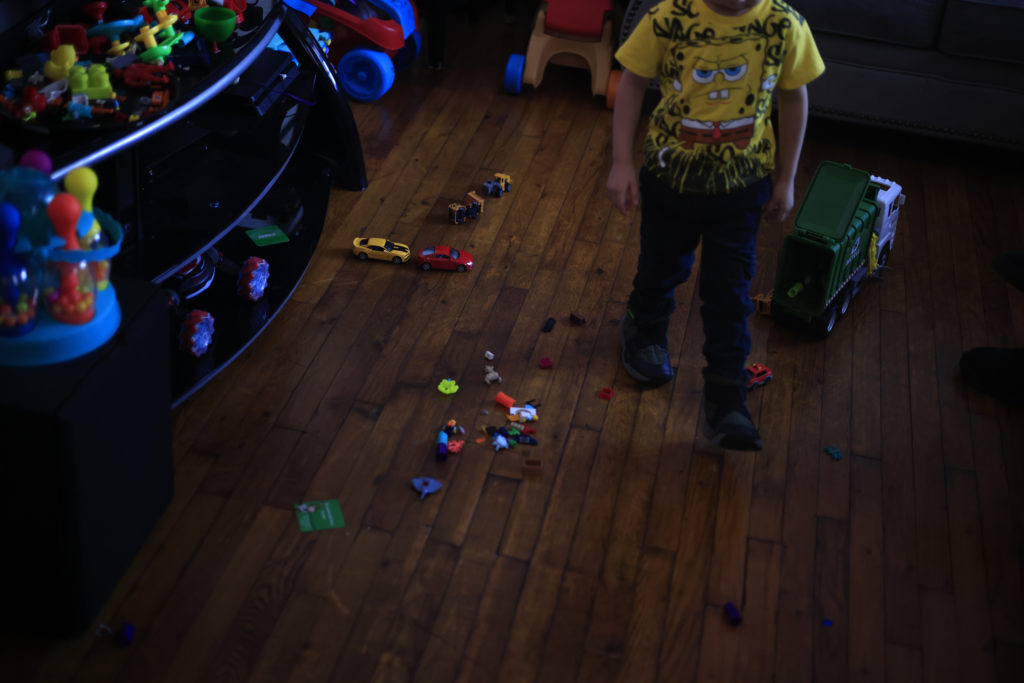
Monserrat proudly showed us two portraits of her mother which she always takes with her to protest alongside Honduran migrants in New York. She says that’s the kind of welcome they will give to any Honduran facing criminal charges in a U.S. court. “Just like we welcomed Juan Orlando Hernández and his brother Tony. It doesn’t matter if they’re members of the Libre Party or any other party. We will be right here holding large banners with their names, handcuffs and a prison uniform because we want Honduras to change,” she said.




